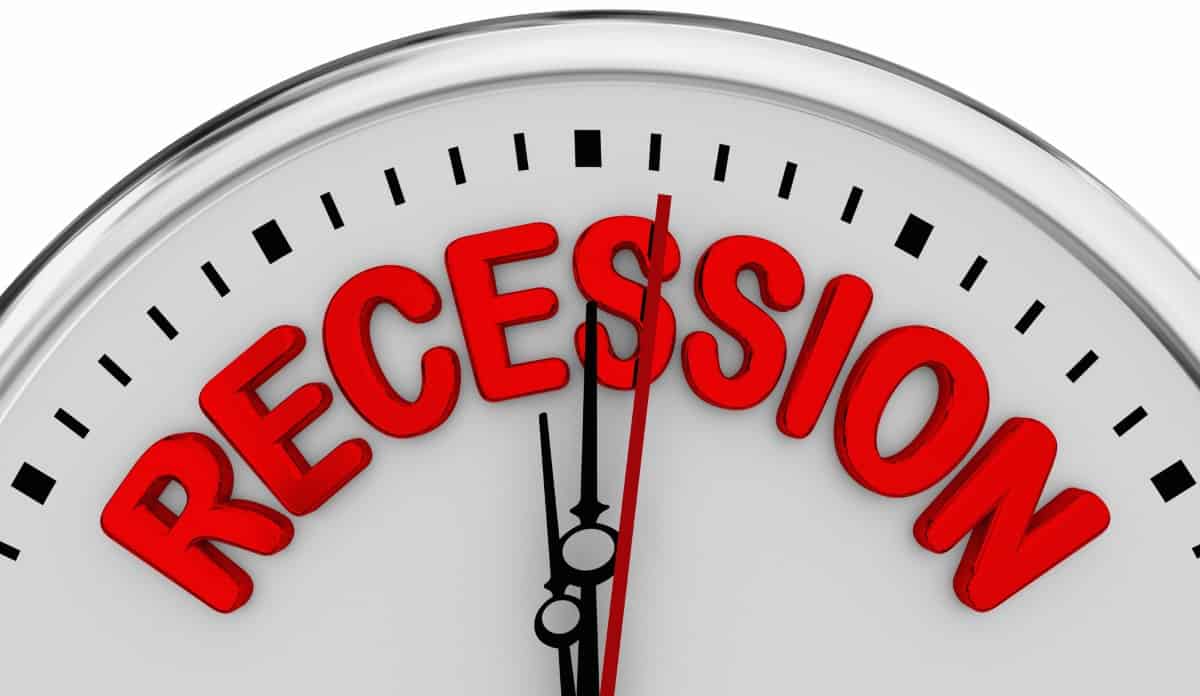20% of Retirees Are Returning to Work. What’s Behind the “Unretirement” Wave?

In recent years, retirement has evolved beyond traditional expectations of leisure. A surprising trend has emerged: 1 in 5 retirees are returning to work. What’s driving so many retirees back into the workforce?
Rising Inflation

Based on a recent report from T. Rowe Price, approximately 20% of retirees are already working either part-time or full-time work, while 7% are actively seeking employment during retirement.
Retirees are increasingly choosing to return to work for various reasons.
Financial considerations play a significant role, with 48% needing to work for economic reasons.
Many retirees find that their assets and pensions may not adequately support their desired lifestyle, leading them to seek additional income through part-time or full-time employment.
According to the report, only 37% of retirees with household assets under $50,000 said they don’t need to work, compared to 55% of individuals within the $50,000-to-$250,000 category and 72% with assets above $750,000.
With inflation hitting a 40-year record high and the volatility in the stock and bond markets, retirees are worried about their nest egg funding their lifestyle no matter what the retirement calculators say. Planning your retirement number and watching your essential expenses double overnight is worrisome for retirees.
Doug Amis, CFP, says, “Retirees watching prices increase at the grocery store have decided to go back to work.”
Missing Social Interactions

Beyond financial motives, retirees often discover that work offers a renewed sense of purpose and engagement, combating the potential boredom or restlessness that can accompany retirement. Social interaction in the workplace, as well as the opportunity to share their wealth of experience and knowledge, is another powerful motivator. 45% of retirees choose to work for social and emotional benefits instead of obsessing over when they can retire.
Amar Shah, CFA, CPA, says, “Many of our business owners and corporate executive clients have a hard time with the traditional definition of retirement. Often, they return to some form of structured work by turning a hobby into a business, becoming an industry consultant/board member, or they take on a more meaningful role at a nonprofit. Through their working years, the business value or stock options have created significant wealth, sometimes $10M+, and many benefits of returning to work are beyond financial. These benefits include having a structure to their day, critical thinking/decision-making, social interactions, and knowing they are making an impact by doing something they enjoy. As advisors to these individuals, we also noticed that they seem happier overall.”
Additionally, pursuing a long-neglected passion or embarking on a new career path can be a source of great personal fulfillment. The flexibility and adaptability of the modern workforce, which includes remote work and freelance opportunities, further make re-entering the job market an attractive option for retirees seeking a work-life balance tailored to their needs.
Employers Are More Flexible

Retirees bring valuable skills and experience to the workforce, making them an asset employers increasingly recognize and appreciate.
Employers who hire retirees often find their decades of professional commitment and strong work ethic to be invaluable assets. They appreciate the wealth of knowledge and leadership qualities that older workers bring. Companies are increasingly embracing age-diverse teams and implementing flexible work arrangements to accommodate retirees, fostering a harmonious and productive work environment.
Riley Adams, CPA, was looking to hire experienced professionals at his firm WealthUp. He says, “Since we are a newer company, having the skill set and knowledge of experienced individuals on-demand is invaluable. We also prefer having experienced retirees willing to work for us under a freelancing arrangement. That means we don’t have to commit fully to a full-time employee at the startup phase. Still, we can also strategically leverage that experience as we need it. Plus, we feel retirees don’t want a full-time job but want to remain engaged with stimulating work part-time. As a result, it’s a perfect match for both parties.”
Challenges Faced by Retirees Joining the Workforce

Retirees venturing back into the job market encounter a unique set of challenges. One prominent hurdle is age discrimination, with employers occasionally harboring unfounded concerns about older workers’ ability to adapt and learn. Additionally, skill gaps may emerge due to evolving industry requirements, necessitating retirees to stay updated with new technologies and trends. The fast-paced nature of technology adoption can be intimidating, but older employees can overcome this by embracing lifelong learning.
Returning to work during retirement can impact retirees’ lifestyles in various ways. While work can provide financial stability, it may alter how retirees engage in leisure activities. Pursuing hobbies and personal interests may take a back seat to work commitments.
Retirees may also need to prepare for the stressful situations of full-time work, resulting in potential burnout. Opting for low-stress jobs can provide a balanced retirement experience that integrates the best of both worlds.
Financial Considerations for Retirees

The financial aspect of retirees returning to work carries both opportunities and considerations. Working in retirement can provide additional income to bolster savings with continued contributions to retirement accounts such as 401(k), HSA, and IRA, potentially increasing the average net worth.
However, it may require careful navigation of Social Security benefits. If you claimed Social Security early before full retirement age, benefits could be temporarily reduced based on earnings. Apart from the added income potentially pushing you into a higher tax bracket, it can also lead to additional costs for Medicare.
This underscores the importance of strategic timing to maximize these benefits. The key lies in aligning work choices with overall financial goals to ensure retirees can enjoy a secure and fulfilling retirement while thriving in the workforce.
Related article: 5 Free Retirement Calculators To Try
Future Outlook for Unretirement

As we navigate the complexities of modern retirement, it’s clear that the landscape has shifted dramatically.
High inflation and the resulting financial pressures have unexpectedly forced many retirees back into the workforce, challenging the traditional notion of retirement as a time of leisure and financial stability.
This trend of “unretirement” is not just a statistical anomaly but a reflection of the broader economic challenges facing today’s society.
However, amidst these challenges lies a glimmer of hope. Efforts to stabilize the economy and manage inflation could pave the way for a future where retirees no longer find themselves compelled to work due to financial necessity.
As we look forward, it’s essential to advocate for policies and support systems that uphold the dignity and choice in retirement, ensuring that returning to work is a matter of personal fulfillment rather than economic compulsion.
Like Financial Freedom Countdown content? Be sure to follow us!
Japan and UK Just Fell Into a Recession. Is the US Next?

Two of the largest global economies have officially entered a recession as per the data released last week. Japan experienced an unexpected decline in GDP, attributed to its weakened currency and aging population. Simultaneously, the UK witnessed a contraction in growth for the second consecutive quarter, occurring just months before a crucial election. Economic data released in the U.S. showed rising unemployment. Although the Federal Reserve could cut rates, inflation came in higher than expected effectively causing concern among economist.
Japan and UK Just Fell Into a Recession. Is the US Next?
11 Low-Stress Retirement Jobs to Keep You Happy and Healthy

After working so many years, it feels great to be able to retire. All those years playing with the best retirement calculators and planning how to retire early have finally paid off. So many plans, like travel, relaxing, working in the yard and doing other things you’ve put off for years. But after a while, many retirees get bored. Getting a job after retiring is a great way to stay active physically and mentally. Most retirees want to stay stress-free while still working at a new job. Retirees have a lot of knowledge and skills to offer. There are many low-stress jobs that retirees can do. Thankfully, some of the best low-stress jobs are some of the more exciting jobs a retiree can do. Before we jump into the list of retirement jobs, there are 5 benefits of finding a low-stress job for retirees.
11 Low-Stress Retirement Jobs to Keep You Happy and Healthy
11 Reasons You Should Claim Social Security Early

Deciding when to claim Social Security is often about maximizing your benefit. Financial planners usually advise delaying your claim for as long as possible to secure the highest monthly payment. Your benefit is based on your lifetime earnings, with a full payout available at your full retirement age (FRA), which is currently between 66 and 67 depending on your birth year. Claiming before FRA results in a permanent reduction in your monthly benefit, while waiting beyond FRA leads to a permanent increase. However, the decision isn’t solely about maximizing the monthly check. Personal factors such as health, family circumstances, and financial needs can play a significant role in determining the right time to claim.
11 Reasons You Should Claim Social Security Early
Comparing Retirement Ages: How Does the US Stack Up Against Other Countries?

Retirement age fluctuates across nations, influenced by diverse factors such as labor market dynamics, job types, economic policies, gender roles, and pension systems. For instance, Saudi Arabia stands out as the sole country offering full retirement benefits to individuals under 50, whereas in 2023, France faced uproar after raising its retirement age by two years, sparking widespread strikes. The Organization for Economic Co-operation and Development (OECD) collects and analyzes retirement data using distinct metrics: – The Current Retirement Age signifies the age at which individuals can retire with full pension benefits after a career starting at age 22, without facing any deductions. – The Effective Retirement Age represents the average age at which workers aged 40 or older exit the workforce, influenced by personal decisions or job availability.
Comparing Retirement Ages: How Does the US Stack Up Against Other Countries?
The 10 States Taxing Social Security in 2024 and the 2 That Just Stopped

As 2023 tax filing season draws to a close, retirees across the nation are adjusting their financial plans for 2024, but a crucial detail could drastically alter the landscape of retirement living: the taxing of Social Security benefits. While many bask in the belief that their golden years will be tax-friendly, residents in ten specific states are facing a reality check as their Social Security benefits come under the taxman’s purview. Conversely, a wave of relief is set to wash over two states, marking an end to their era of taxing these benefits. This shift paints a complex portrait of retirement planning across the U.S., underscoring the importance of staying informed of the ever changing tax laws. Are you residing in one of these states? It’s time to uncover the impact of these tax changes on your retirement strategy and possibly reconsider your locale choice for those serene post-work years. Here are the states taxing social security benefits.
The States Taxing Social Security in 2024 and the 2 That Just Stopped
Retire Abroad and Still Collect Social Security? Avoid These 9 Countries Where It’s Not Possible

Dreaming of retiring to a sun-drenched beach or a quaint village? Many Americans envision spending their golden years abroad, savoring the delights of new cultures and landscapes. However, an essential part of this dream hinges on the financial stability provided by Social Security benefits. Before packing your bags and bidding farewell, it’s crucial to know that not all countries play by the same rules when it comes to collecting these benefits overseas. Here are the nine countries where your dream of retiring abroad could hit a snag, as Social Security benefits don’t cross every border. Avoid living in these countries so your retirement plans don’t get lost in translation.
Retire Abroad and Still Collect Social Security? Avoid These 9 Countries Where It’s Not Possible

John Dealbreuin came from a third world country to the US with only $1,000 not knowing anyone; guided by an immigrant dream. In 12 years, he achieved his retirement number.
He started Financial Freedom Countdown to help everyone think differently about their financial challenges and live their best lives. John resides in the San Francisco Bay Area enjoying nature trails and weight training.
Here are his recommended tools
Personal Capital: This is a free tool John uses to track his net worth on a regular basis and as a retirement planner. It also alerts him wrt hidden fees and has a budget tracker included.
Platforms like Yieldstreet provide investment options in art, legal, real estate, structured notes, venture capital, etc. They also have fixed-income portfolios spread across multiple asset classes with a single investment with low minimums of $10,000.





